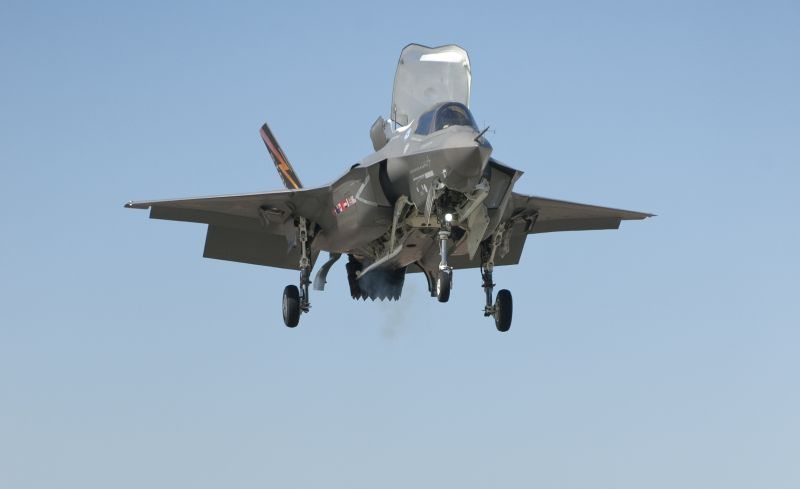The US Air Force vowed Monday to “protect” costly weapons programs despite budget pressures, saying the country needed the F-35 fighter jet, a long-range bomber and other aircraft.
While acknowledging the need for reductions to the defense budget, Air Force Secretary Michael Donley proceeded to list several big ticket programs that were not up for negotiation.
“There are certain capabilities we will protect. We will apply best military judgment to oppose reductions that would cause irreparable harm,” Donley told retired members of the Air Force in a speech.
The firm line taken by Donley comes as the Pentagon seeks to fend off possible deep budget reductions by lawmakers. Congress has to find a way to trim the country’s deficit by a November 23 deadline or else automatic cuts will be triggered that could derail the Pentagon’s budget plans.
With an aging fleet of fighter planes, it was crucial to build the next generation combat aircraft, the F-35 Joint Strike Fighter, to ensure US air superiority, Donley said.
“With a fighter fleet now averaging 22 years old and with two decades of declining fighter force structure, modernizing our aging and smaller fighter force depends on the fifth generation capabilities of the Joint Strike Fighter,” Donley said.
“Simply put, there is no alternative to the F-35 program. It must succeed,” he said of the aircraft, which has been plagued by cost overruns and delays.
The F-35 has come under growing scrutiny amid speculation that the Pentagon may be forced to downsize the program, including possibly eliminating a version of the plane designed for short takeoffs and vertical landings.
The civilian head of the Air Force also argued for maintaining funds for a planned long-range bomber, space satellites, nuclear forces, unmanned robotic aircraft and benefits promised to service members when they joined.
Donley said that budget reductions would require the Air Force to accept “greater risk in some areas, terminate some lower priority programs, streamline others,” but did not provide details.
In his speech to the Air Force Association, Donley also said that within 10 years the force could be “potentially smaller than in previous decades” but did not offer an estimate.










